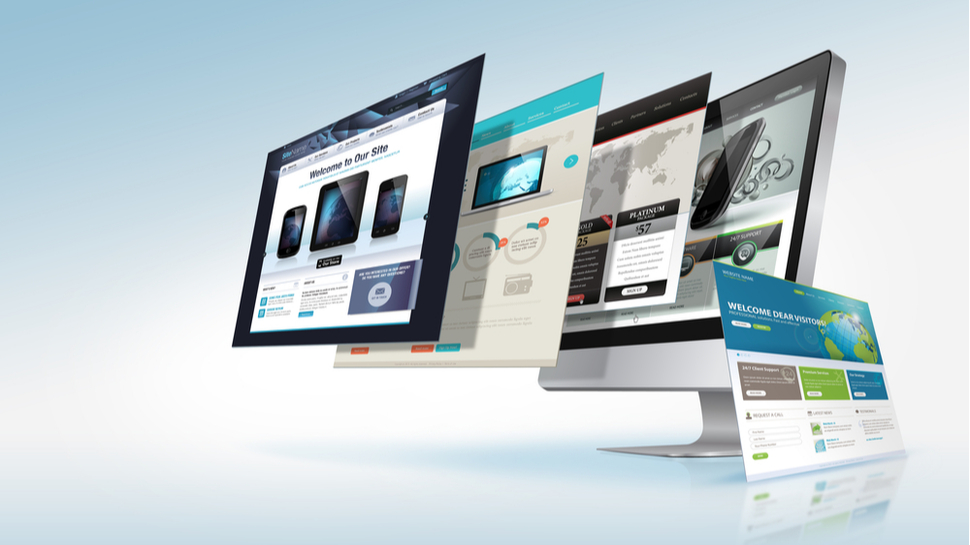
A recent survey by GoDaddy sought to understand exactly how consumer expectations are matching up with small business reality. The result, perhaps unsurprisingly, shows a significant disconnect between how good businesses think they are and consumers’ opinions on their experience.
According to the report, 91% of small businesses feel they offer their customers a convenient online experience - but only 21% of consumers (and 19% of Gen-Z) felt the same way.
That’s pretty shocking, right?
It doesn’t just show us that small businesses are living in dreamland, but without change, it could mark easy territory for business behemoths to swoop in and steal even more market share.
I’ve spent over a decade working for and with small businesses. The majority of them believe that providing a better, personalized service is what sets them apart from their larger competitors.
But does this stat surprise me? Nope.
Unfortunately, many small businesses measure their success by the hard work they put in - and the majority of them put in a bucket load. But hard work only really matters if it’s invested into the right thing…and the right thing can constantly change.
Very few small business owners ask themselves whether their hard work is directly benefiting the customer. Fewer still ask whether their hard work could benefit their customers more if it were to be directed elsewhere.
Business failure or unrealistically high standards?

But is it really all small businesses' fault? Could it just be that consumers' expectations are totally unrealistic?
Other statistics from the same study can tell us something about this. It found that 90% of consumers highlighted the importance of small businesses offering free shipping, but only 3 in 5 of the small businesses surveyed do this. It also found that only 1 in 3 small businesses offer ‘Buy Online, Pickup In-Store’, but 83% of Millennials said this was important.
Free shipping may be common, but for many small businesses, it isn’t all that easy. Most of them already operate on tiny profit margins and adding free shipping will either price them out of the market or eliminate their profit altogether.
Similarly, ordering online, and picking up in-store is great for businesses that have a physical store, but many small businesses don’t. Even those that do are unlikely to have the logistical ability or resources to run this sort of shopping experience.
Small businesses must do better

Other stats paint a different picture. According to GoDaddy, 89% of consumers said it’s important for small businesses to have a website, but 24% of those surveyed are still to get one. In addition, the majority of consumers said they are more likely to purchase from a business that shares its personal story, yet 1 in 5 businesses fail to do this.
I mean, come on!
Website builders have made it easier than ever for businesses to get online. You can build your website in just a few hours and hosting/ongoing management costs can be as little as $2.99/mo for a professional site. Even for businesses with literally zero marketing budget, there are plenty of free website builders out there to get you started. Plus, almost all the website builders on the market offer at least some level of ecommerce functionality.
No business website? That’s just lazy.
As for a small business not sharing its story? Why…on…earth?
Big businesses can compete with the small guys on almost every level. They can afford faster shipping, deliver smoother customer support, and undertake extensive customer research. But where they struggle to compete is in making a real, personal connection with their customers.
For most small businesses, telling your story is the best way to gain a competitive edge.
It is literally what sets you apart from the big boys. Get out there and share who you are, how you came to be, and why buying from you matters.
Oh, and by the way, a website is a great place to do this…
Are small businesses in danger?
It makes me wonder. If small businesses aren't meeting consumer expectations, why are they still shopping there?
GoDaddy Trends Expert Amy Jennette told us: "Consumers are ultimately looking for convenience, and if small businesses aren't meeting these expectations, they're likely losing business."
I’d say, although unhappy with some aspects, consumers still see the benefit of buying from small businesses. They like knowing their money isn’t going straight into the ‘new Porsche' fund of some multinational CEO and instead supporting someone just like them.
Will this change because of a small amount of perceived inconvenience? It’s unlikely.
There is no hiding from the fact that small businesses have it hard. They just don’t have the budget and resources to offer the same level of service that larger businesses can, at least not whilst keeping prices competitive.
But if small businesses really want to compete, if they really want to steal market share from their much larger competitors, they need to be proactive in filling the gaps identified by this study wherever they can.
Ultimately, consumers are likely to be forgiving to small businesses that simply cannot offer the same level of convenience as their biggest competitors. Yet, they are unlikely to be as forgiving to businesses that simply do not try to improve their offering wherever possible.







